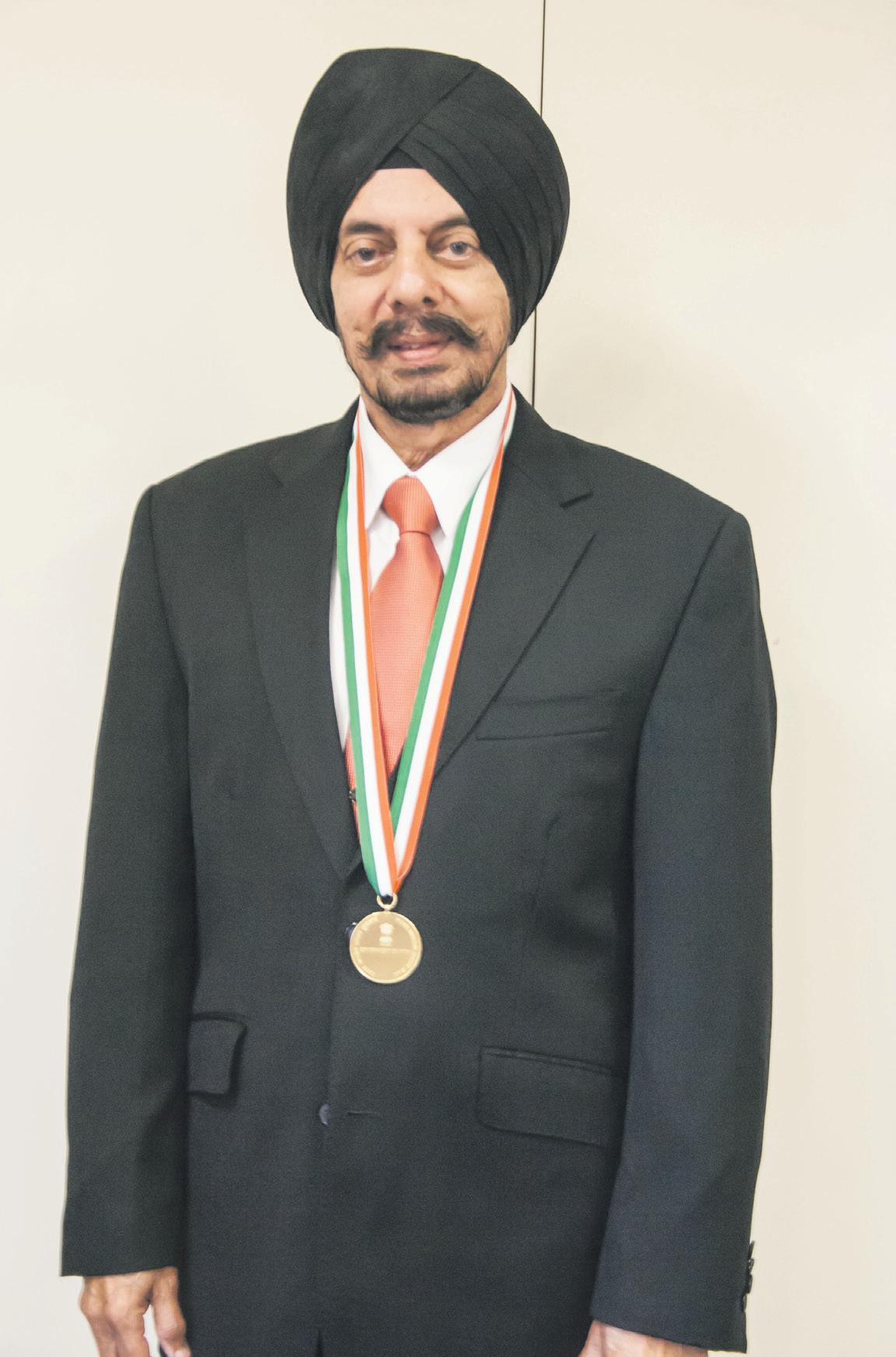
15 minute read
anisation brings haratiya award
from 2013-02 Melbourne
by Indian Link
Overseas Indian Affairs Vayalar Ravi urged the delegates to air their issues openly at these sessions and exchange views and perspectives. Dr. Aurora who voluntarily attended these sessions said, “It was appalling to hear the stories of discrimination, lack of human rights and exploitation of people especially the plight of several illiterate migrants who ended up in prison due to an error in the paperwork filled in by celebration souvenir, include:
• Establishment of the Victorian Indian Community Charitable Trust (VICCT) in 1986 for the provision of permanent housing and financial assistance for disadvantaged persons.
• Successfully lobbying the Victorian State Government in 1990 to exempt Sikhs from legislation introduced in Parliament to ban the carrying of knives. This legislation affected baptized Sikhs and prevented them from carrying a kirpan. Legislation stating compulsory wearing of helmets while riding a pushbike was also adopted to accommodate turbaned Sikhs.
• Successfully lobbying the Indian Government in 1991 (for three years) to establish consular services for Indians in Melbourne.
• Introducing in 1992 ‘Mehfil’ nights to showcase emerging and established artists in the field of music and arts. These continue to this day and provide the Indian community an opportunity to celebrate their culture and people.
• Applying pressure to both sides of Government over a three-year period for the introduction of a two-year waiting period for Spouse Visas in 1995. This resulted in a fairer Visa Process for overseas spouses from all countries and the AISV helped in establishing a fair immigration policy.
• Helping establish in 1999, in partnership with Australian Unity, a Travel Insurance fund for overseas visitors to enable them to gain access to hospitals and medical care. This served to take the burden off the State Government and in some cases the children of elderly parents who were
Psychiatrist Dr Manjula O’Connor, Vice-President supporting their parent’s travel to Australia.
• Conducting a two-year research project in 2009 on the issue of the international students and putting forth 45 recommendations to the Federal and State Governments.
Ms. Priya Saratchandran wrote the Paper and the recommendations were accepted and changes made to the status of international students accordingly.
• Creating a taskforce in 2011 against domestic violence in Indian and ethnic communities to help the victims of such violence with the help of Dr. Manjula O’Connor. This was in response to the increasing instances of domestic violence within the community and the need to offer cultural specific assistance.
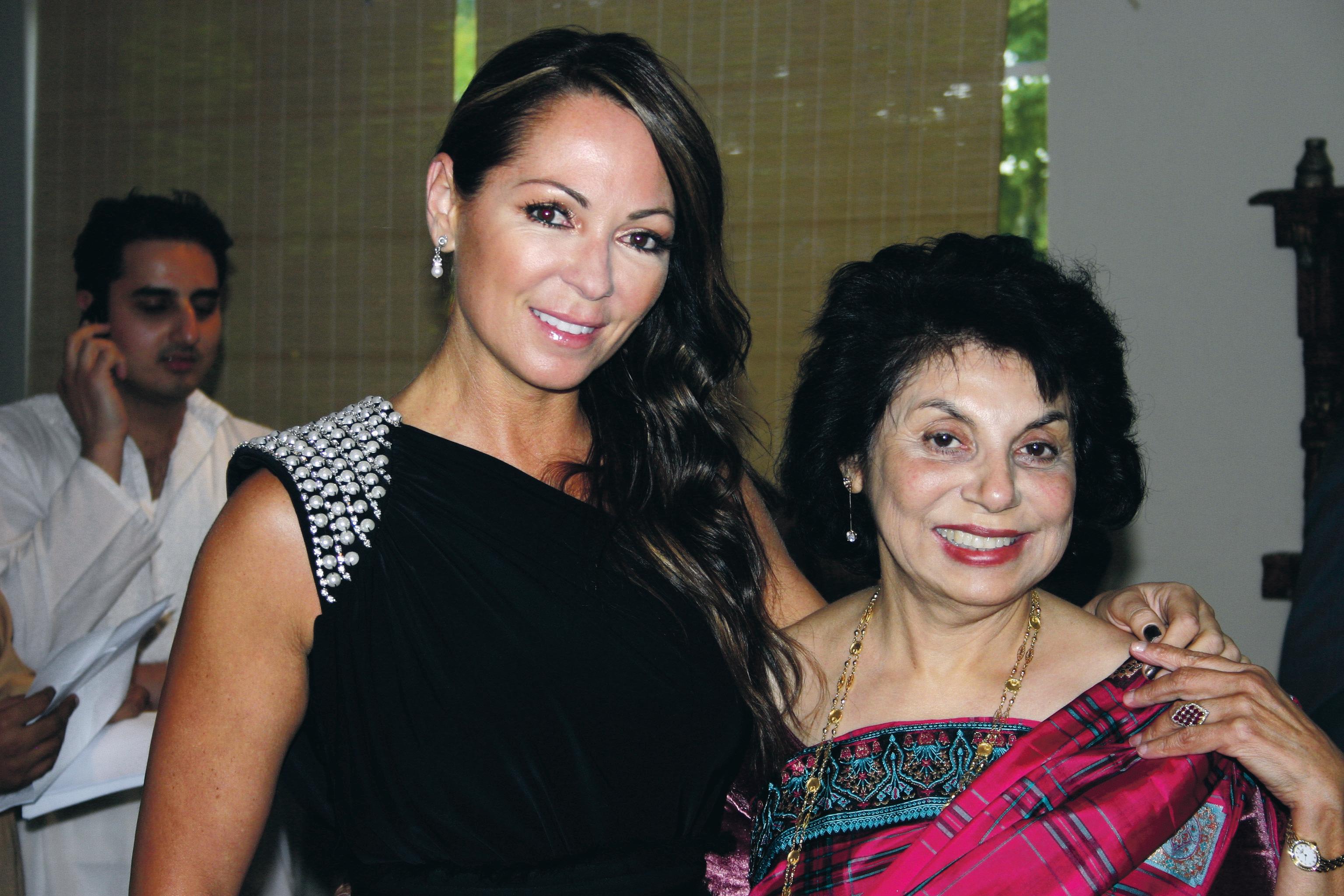
Dr aurora at PBD 2013
The theme of the 2013 Pravasi Bhartiya Divas was: Engaging Diaspora: The Indian Growth Story Many seminars, workshops and events linked to the theme were held including an exclusive session that gave a platform to people from Kerala in the Gulf to air their grievances. In his inaugural address, Union Minister for
He continued, “During my stay I briefly met Salman Khurshid, Cabinet Minister of the Ministry ; columnist and author Shashi Tharoor; Deputy Chief Minister of Punjab Sukhbir Singh Badal, and had a meeting with Minister of State for from Patiala. I also took the opportunity to remind the Prime Minister that his visit to Australia was long overdue” said Dr. Aurora.
Conventions like these provide a platform to the overseas Indian community to engage with the government for mutually beneficial activities. They are also useful in networking among the overseas Indian community residing in various parts of the world and enable them to share their experiences in various fields. The PBD’s main objective is to strengthen the diaspora’s engagement with India. “In that sense the PBD met its objective,” remarked Dr Aurora. “However I wish the general public had more access to the Prime Minister and President. They were both kept away from the public under very tight security and I couldn’t help comparing this with Australia and the fact that we have relatively easier access to people in power here”.
future directions for aIsv
Psychiatrist Dr Manjula O’Connor, Vice President of AISV, and Chair of the Taskforce Against Domestic Violence in Indian and Ethnic Communities, commented on the future direction of AISV.
“In 2010-2012 we worked on domestic violence with women of the Indian community. This year we plan to work with Indian men. This is a prevention strategy.
Prevention of domestic violence is considered now as a more useful and fruitful area to target. The Taskforce will recruit men from the general Indian community. The project is an action research project, and will be conducted in partnership between AISV, the Melbourne University and the Australasian Centre for Human Rights and Health (ACHRH),” she said. “We have been fortunate in forming partnerships with a taxi company (who recruit young Indian men) and the Sikh Women’s Network from Western Victoria in this project. This project with Indian men will consist of using community-based interactive theatre to explore Indian men’s concept of DV; simultaneously raising awareness on the issue including legal and criminal implications. We have secured partial funding for this project from the Victoria Multicultural Commission and partly from ACHRH”.
When asked if achieving this award would make any difference to how AISV will conduct itself in future, Dr. Gurdip Aurora said, “We have worked hard for the last 50 years and we will continue to do so in future. There will be no change to our normal routine and we will keep working with the same dedication and keep contributing significantly to the community,” he said in conclusion.




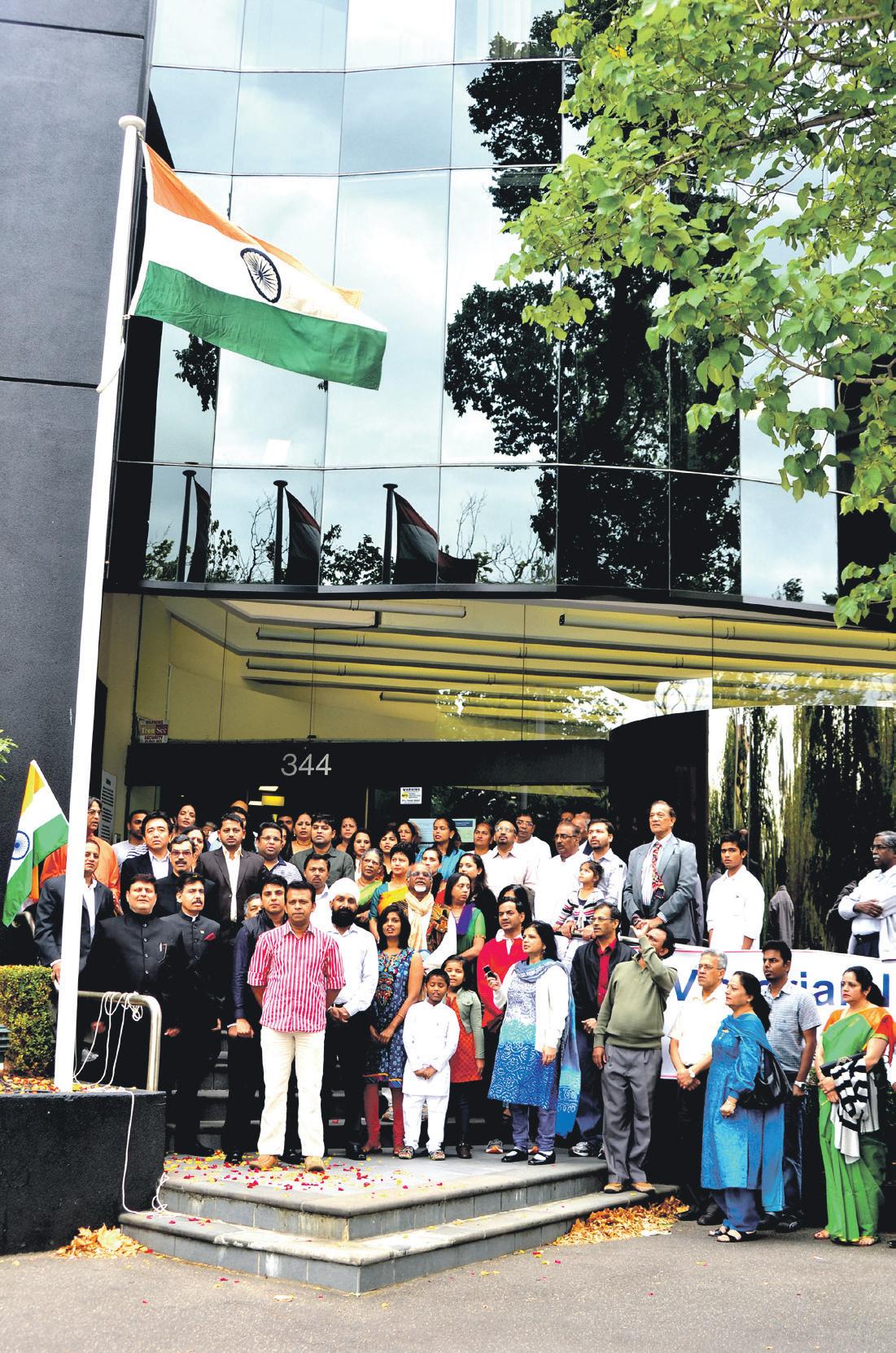



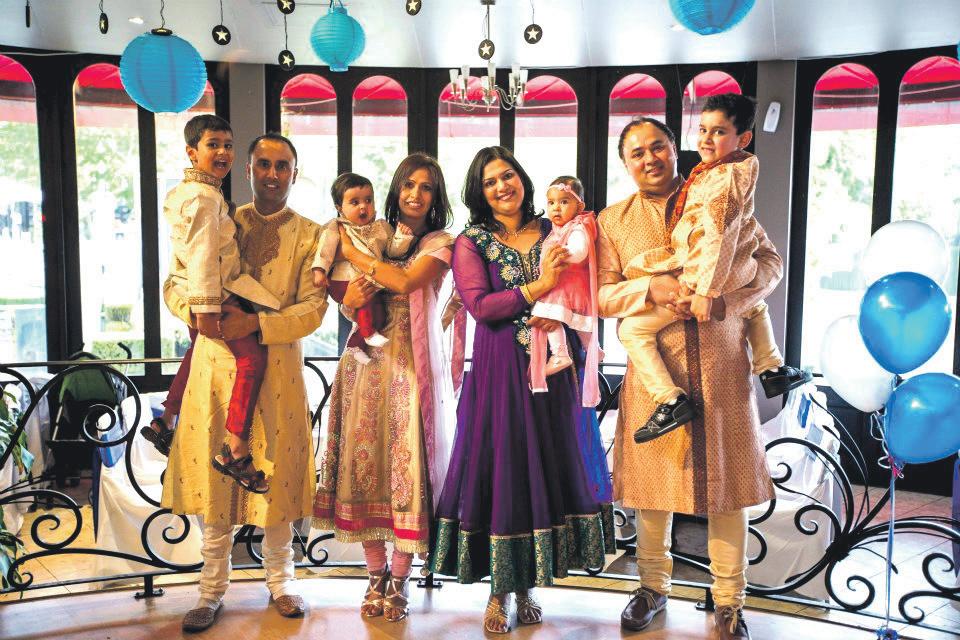

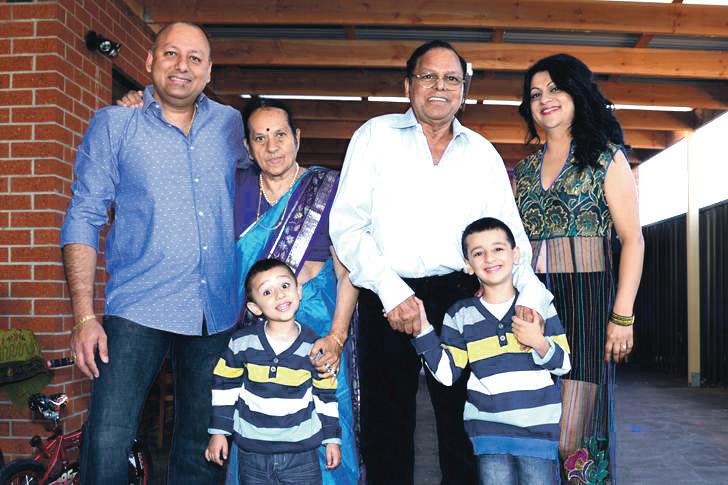


Kashmir’s first girl teenage rock band Pragaash, or First Light, from Indian-administered Kashmir has decided to quit after the region’s top Muslim cleric declared their music to be “un-Islamic”, according to their manager. Pragaash, a three-piece group whose members are still in high school, had been the target of an online hate campaign ever since winning a “Battle of the Bands” contest in Srinagar in December.
IAF eyes private vendors to replace Avro fleet
For the first time in its service, the Indian Air Force (IAF) will buy transport aircraft from private vendors to replace its ageing Avro fleet.
“We will release this month an RFP (request for proposal) to acquire 56 cargo aircraft from the private sector for replacing the indigenously-built Avros, which will be phased out,” Air Chief Marshal N.A.K. Browne said at an aerospace event.
Of the 56 aircraft, 16 will be procured offthe-shelf and the remaining 40 will be built in the country by a private consortium of overseas and domestic vendors.
Estimated to cost a total of about $3 billion (Rs.16,000 crore), the defence ministry’s acquisition council has recently allowed the air force to float a global tender to purchase a twin-engine cargo aircraft in six-eight tonne class, with a cruise speed of 800 km per hour and a range of 2500-2800 km.
The vintage Hawker Siddeley 748M Avros, built by the state-run defence behemoth Hindustan Aeronautics Ltd (HAL) during the 1960s, were inducted into the IAF transport fleet for ferrying its personnel as well as heavy equipment.
The Avros are also being used for rescue and relief missions.
“Acquisition from non-PSUs (public sector undertakings) will encourage the Indian private sector to design and develop a modern transport aircraft for military operations,” Browne said at the international seminar on “Aerospace ProductsChallenges in Design to Development”, being held ahead of the ninth edition of the biennial Aero India trade event.
The programme will also enable the vendors to service the aircraft besides encouraging small and medium enterprises to develop parts, sub-systems and accessories, as the first 16 aircraft will have 30 percent indigenous component and 60-80 percent in the remaining 40 aircraft.
Airbus Military with its C295 and Alenia Aermacchi with its C-27J are likely to be in race for the multi-million dollar deal.
Obama awards science medal to Indian-American inventor
President Barack Obama has awarded Rangaswamy Srinivasan, an Indian-American co-inventor of LASIK eye surgery, with a national medal for science, technology and innovation along with 22 other researchers and inventors.
Srinivasan, 82, an inventor at IBM Thomas J. Watson Research Centre, received the 2011 National Medal of Technology and innovation with Samuel Blumand James Wynne.
They were awarded for “the pioneering discovery of excimer laser ablative photodecomposition of human and animal tissue, laying the foundation for PRK and LASIK, laser refractive surgical techniques that have revolutionized vision enhancement,” according to the White House citation.
Lauding the recipients for their hard work and contributions at a White House ceremony, Obama joked that they represented “the greatest collection of brainpower we’ve had under this roof in a long time.”
The medals represent the highest honours the US government can give to scientists, engineers, and inventors.
Speaking in the East Room of the White House, Obama flanked by Dr. Subra Suresh, Indian-American head of the National Science Foundation, thanked the recipients for “the sacrifices they’ve made, the chances they’ve taken, [and] the gallons of coffee they’ve consumed.”
The president also used the opportunity to make a pitch for increased focus on science and technology education, as well as immigration reform.
“In a global economy, where the best jobs follow talent, whether in Calcutta or Cleveland, we need to do everything we can to encourage that same kind of passion” that has led to scientific breakthroughs and innovation, he said.
Punjabi, Bengali, Gujarati among top 10 languages in Britain
Punjabi, Urdu, Bengali and Gujarati are among the top 10 languages spoken in Britain, according to latest census figures.
BBC reported that the number of people in England and Wales who could not speak any English was 138,000.
According to the 2011 census, after English, the second most reported language was Polish, with 546,000 speakers, followed by Punjabi and Urdu.
Some four million people - or eight percent of the population - reported speaking a different language other than English or Welsh.
The top 10 reported languages were English, followed by Polish, Punjabi, Urdu, Bengali, Gujarati, Arabic, French, Chinese (excluding Mandarin and Cantonese) and Portuguese.
Not all languages were spoken, with 22,000 people using sign language, BBC reported. English or Welsh was the main language for 92 percent - or 50 million - of residents aged three and over.
Of those with a main language other than English, 1.7 million could speak English very well, while 138,000 could not speak English at all.
In London, 1.7 million residents used a main language other than English.
US-based linguist discovers a new dialect in Bihar
A US based Indian linguist claims to have discovered a new dialect spoken by the minority Musilm community in some districts of Bihar that has no written record or name.
Mohammad Warsi, who teaches linguistics and Indian languages at the Washington University in St. Louis, said the main language for communication in Darbhanga, Madhubani, Samastipur, Begusarai and Muzaffarpur, is Maithili. But when Muslims speak among themselves, they speak a dialect that is different from Maithili, Hindi, and Urdu. This dialect does not have its own script or literature, he said.
This might be the reason that this dialect went unnoticed to linguists so far, said Warsi, who is a recipient of James E. McLeod Faculty Recognition Award for 2012.
While doing a comparative study, Warsi said he found that this new dialect is completely different from Hindi, Urdu, and Maithli and their verb conjugation and sentence structure, is quite different from each other.
For example “We are going” would be rendered “hum jaa rahain hain” in Hindi, “hum jaay rahal chhii” in Maithli and “hum jaa rahain hain” in Urdu sentence. But in the new dialect it would be: “ham jaa rahaliya hae”. Also, there is no agentive marker “-ne” in Mithilanchal Urdu.
Only one second person pronoun “tu” is used in the new dialect instead of “tu, tum and aap”.
From these examples, it is clear that the verb conjugation in the new dialect is completely different from that of Hindi, Urdu, and Maithli, Warsi said.
Warsi, a native of Darbhanga district in Bihar has given the nomenclature of ‘Mithilanchal Urdu’ to this dialect.
“Language does not have any boundaries, nor is it dependent on any boundary,” he said.
“Dialects are the contact languages of particular regions, and they have a deep impact on their cultural heritage,” he said. “Slowly with time these dialects begin to take shape of languages.”
The convergence of a dialect into a language is a symbol and pride of the people who speak it, Warsi said suggesting the inclusion of the new dialect in a recently initiated nationwide linguistic survey.
Kashmir’s all-girl rock band quits performing
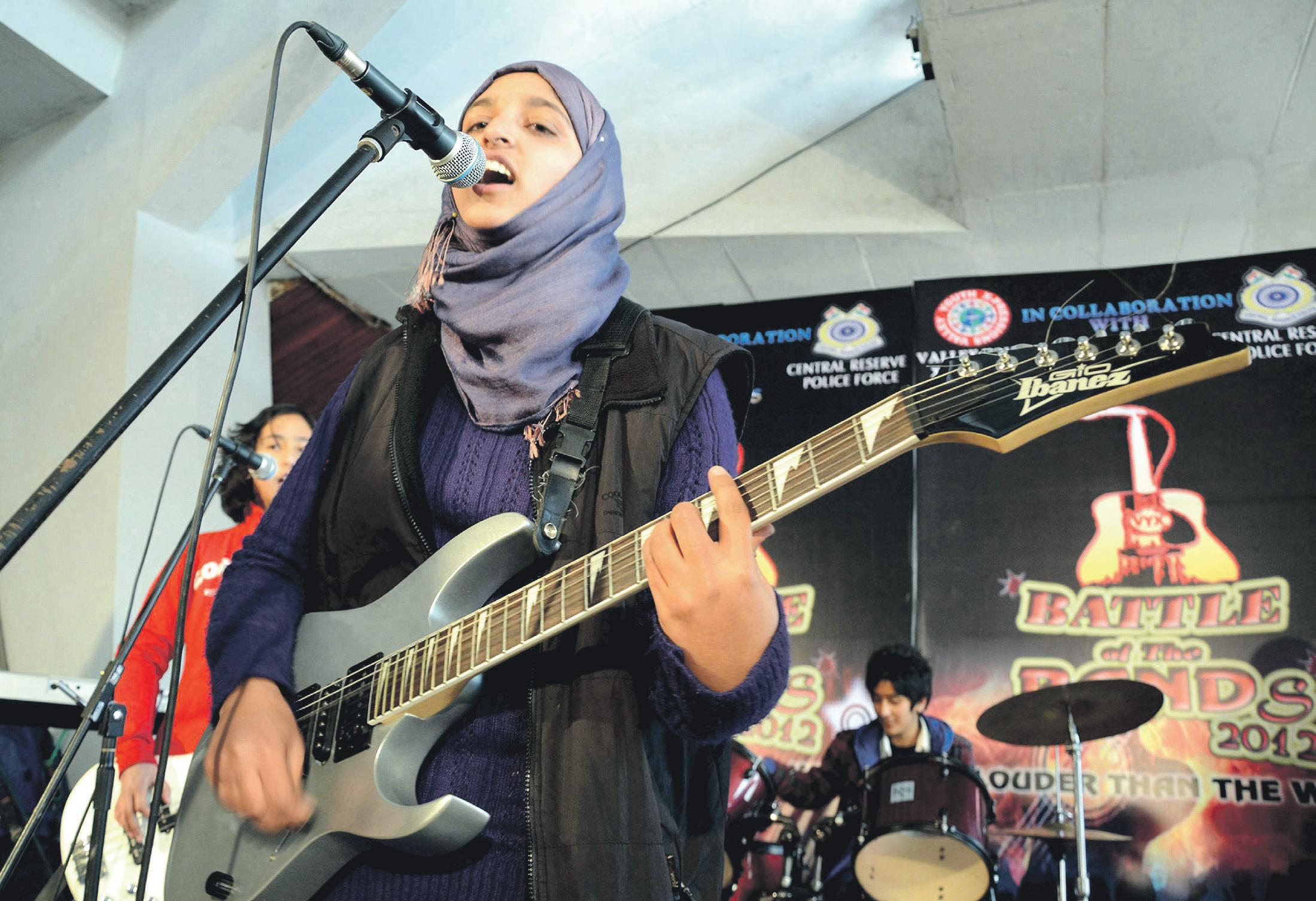
The teacher of the all-girl rock band against whom a ‘fatwa’ was issued said that the girls have stopped performing even as Chief Minister Omar Abdullah promised police investigations into the threats.
Adnan Muhammad Mattoo, who trained the three Class 10 girls before they formed the valley’s first girls’ rock band said “Since the grand mufti, whom we treat as part of the government, says they must not play music, the three girls have decided to quit.”
“I formed the valley’s first rock band, Blood Rock, seven years ago. I now feel seven years of my life have been wasted. I have also decided to quit and give up my pursuit of rock music,” Mattoo said.
He added that there are nearly 40 rock bands in the state. “Their future is also in doldrums now,” he said.
After receiving threats on the social media, the family sources of the three girls who formed the Pragaash band said they had told their wards not to continue their pursuit.
Bashir-ud-din Ahmed, head of the Muslim clergy in Kashmir, issued a ‘fatwa’ (religious decree) asking the parents of the three girls to impart religious education to their daughters and labelled the girls’ performance as “a shameful act”.
Separatist leaders also disapproved of the girl’s band and said: “This (band) was against moral values and they (the girls) should refrain from singing. There is no place for such acts in Islam.”
Chief Minister Omar Abdullah had hoped on his micro-blogging Twitter site that the three talented girls would not give up under threats from “a handful of morons”.
Abdullah also said he would have the threats against the girls investigated.
Mehbooba Mufti, president of opposition People’s Democratic Party (PDP), said here Monday that Kashmiri women singers like Raj Begum, Kailash Mehra and Shamima Azad had been widely appreciated and encouraged. “I don’t know what religious reasons the grand mufti had to issue his decree, but I feel it is being blown out of proportion,” she said.
PDP spokesperson Naeem Akhtar told media persons: “Music is part of our spiritual culture since decades. Kashmir has produced many women singers and Kashmiris are still fond of their songs.”
Ruling National Conference leader Mustafa Kamal said: “The chief minister has said he would provide security to these girls if they want to pursue their passion. He has also said he would not intervene if the girls decided to give up their pursuit of music.”
Taking strong exception to the ‘fatwa’, state BJP chief spokesperson Jitendra Singh said: “These (fundamentalists) who are uncomfortable with the return of normalcy in Jammu and Kashmir want to keep the Kashmir pot boiling for their vested interests.”
He added: “These are elements which do not want the youth of Kashmir to be a part of the national mainstream in democratic India.”
The band Pragaash (morning light) comprising three Class 10 girls, gave their first live performance at Srinagar’s music festival, Battle of the Bands, Dec last year. States
Will Invite Bids For Power To Meet Demand
States will invite bids for procuring electricity to bridge the gap in demand and supply in the next six months, the government said.
It is part of a package of measures power ministers of states and union territories resolved to adopt to improve the country’s power situation after a meeting with union Power Minister Jyotiraditya Scindia.
A power ministry statement said the states will now invite bids for procurement of power to meet the uncovered gap in demand and supply within the next six months through Case I bidding.
Case I is an open bid where the developer has to decide for fuel and location and compete against any other developer.
“State governments would prepare plans covering generation and transmission infrastructure for all time horizons and would procure about 90 percent power of their requirement under long-term or medium-term agreements,” the statement said.
Briefing media persons on the progress of the financial restructuring programme (FRP) for distribution companies (discoms), Scindia said 5 out of seven “focus” states had agreed to take part in the scheme.
“Five states are already on board (the FRP). Their total short-term liability is close to Rs.120,000 crore. We are speaking to the finance ministry for the approvals so that in the near future, next week, we’ll be able to take it forward,” Scindia said.
Tamil Nadu, Andhra Pradesh, Rajasthan, Haryana and Uttar Pradesh are the states which have commited to the FRP.
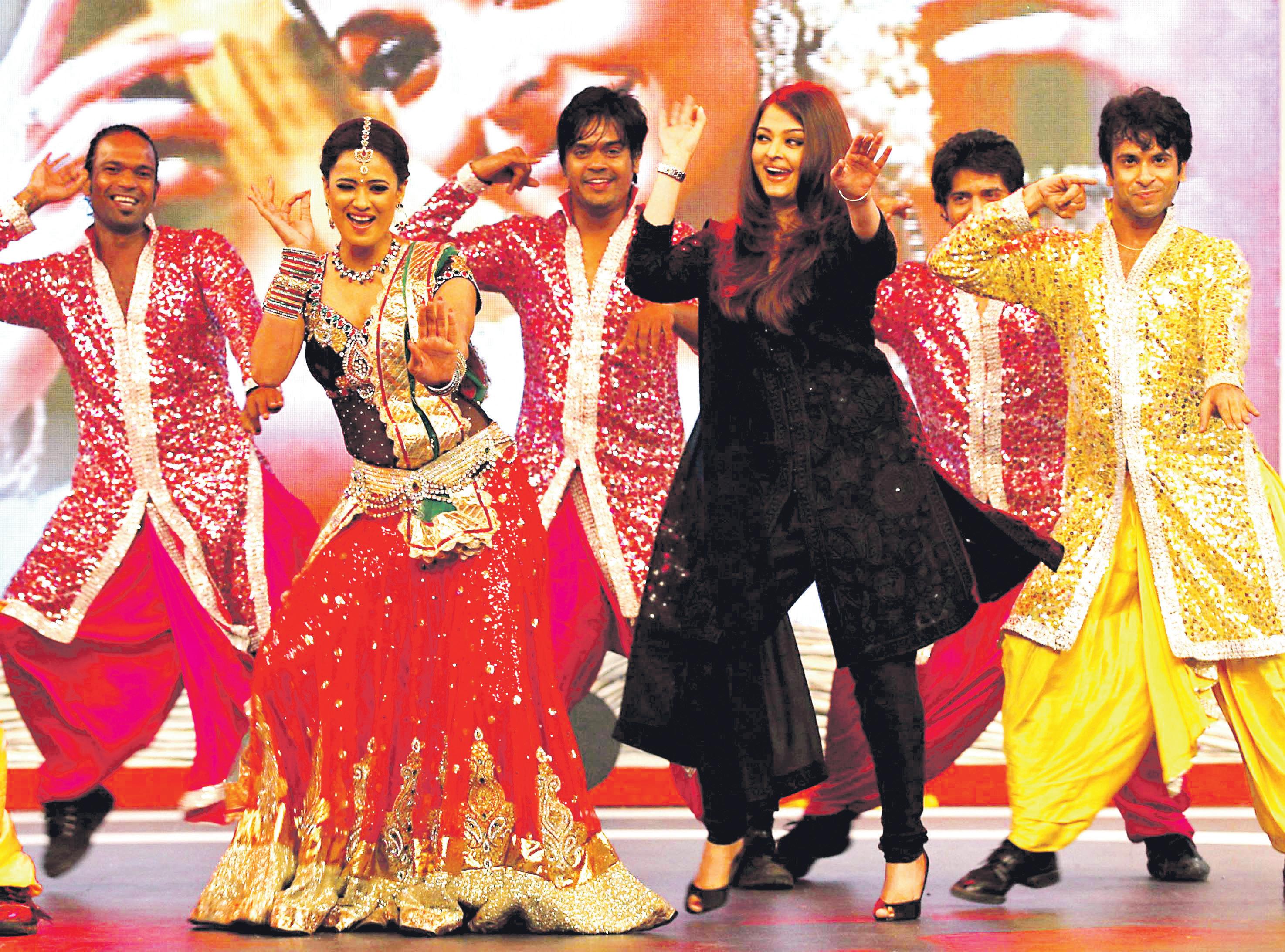
In September last year, the Cabinet approved the restructuring package for discoms’ debt burden, which stood at a staggering Rs. 246,000 crore at end of March 2012.
Under the scheme, 50 percent of the short-term outstanding liabilities would be taken over by state governments. The balance 50 percent loans would be restructured by providing moratorium on principal and best possible terms for repayments.
The 6th conference of power ministers of states and UTs deliberated several issues regarding providing affordable and adequate power to consumers and making electricity accessible to all, particularly in those areas that are not connected with the grid.
It was also decided that the state governments would ensure the accounts of the utilities, up to 2011-12, are audited and finalised by March 2013, and in future the accounts of a financial year are audited by September of the following financial year as per the Companies Act.
States would ensure that discoms file multi-year tariff petition and that State Electricity Regulatory Commissions (SERCs) announce multi-year tariff as per the National Tariff Policy.
Wipro unveils aerospace facility in Bangalore SEZ
IT major Wipro Ltd’s global hydraulics business unveiled its aerospace facility in the special economic zone (SEZ) at Devanahalli near the airport on the city’s outskirts. Set up with an upfront investment of Rs.650 million in a 7.2 acre campus, the country’s first of its kind plant has an installed capacity to manufacture about 2,000 actuators annually for various aerospace applications.
An actuator is a device used to control hydraulic fluid or pneumatic pressure in a mechanical or electronic system and convert this energy into motion.
“Our actuators will have various applications in aircraft, including landing gear, flight control systems, engines and utilities,” Wipro Infrastructure Engineering president Pratik Kumar said on the occasion.
The global actuator systems market is estimated to be around $3 billion.
“Our vision is to build a significant presence in the aerospace and defense market, leveraging on our experience and competence in precision engineering and machining space,” Kumar said.
The company’s engineering division tied up in May 2011 with Spanish firm Compania Espanola de Sistemas Aeronauticos SA, a subsidiary of the European Aerospace and Defence Corporation, EADS, to manufacture precision engineering components.
“The pact involves technology transfer as well as manufacturing aerospace actuators and related precision engineering components by Wipro for CESA,” Kumar said.
The company plans to double the investment over the next six years to expand capacity to about 8,000 actuators per annum and add new product lines in precision manufactured components.
“We have big plans for this business and are in talks with several players to develop multiple product lines as the facility, with end-to-end capabilities from product development, manufacturing to testing, is well positioned to partner global OEMs/tierIs, which are looking to extend their supply chains to cost-competitive countries like India and to meet their offset obligations,” said engineering business head Sunil Rajagopalan.
The facility will commence its serial production in April.
Wipro chairman Azim Premji, EADS/ Airbus vice-president Klaus Richter and Karnataka’s principal secretary (industry) M.N. Vidyashankar were present on the occasion.
Now Ramayana in Polish language
Ramayana, the great Indian epic, is now available in Polish language, courtesy Janusz Krzyzowski, an Indologist in Poland who has translated the monumental work.
Though few episodes of Ramayana were translated into Polish in 1816, these were mere translation of western writers. In the 20th century, some attempts were made to translate a few more chapters.
It seems Krzyzowski collected the material from dozens of books and presented in a coherent manner so that a reader could sustain his interest while going through different chapters. The original was penned by Maharishi Valmiki in Sanskrit.
“My main purpose was to translate this epic into many chapters in a story format so that laymen and particularly Polish children could enjoy the book as well as they should be aware of the great Indian mythological tradition.
“Ramayana and Mahabharata are two great epics which cannot (be) compared with other epics. Even Greek epics come out as pale shadows when we see the canvas of the Indian epics. They are almost unique in the history of mankind,” Krzyzowski told reporters.
The book’s effect was visible when a group presented a two-hour show on the pattern of Ramlila. In May, the group will visit few cities in Poland to enact Ramlila for Polish schoolchildren with the help of the Embassy of India in Warsaw.
“He has done great justice to promote India in his nation. He deserves all our praise and we feel proud that such a gem is with us in Poland,” said the Indian ambassador Monika Mohta.
Krzyzowski has been a prolific writer on India since 15 years. His love for India has roots since his university days when he enrolled for a master degree in philosophy after a medical degree. This interest turned him into an automatic Indophile.
His books on Ashoka and Tansen were well-received along with books of Urdu masters like Mir Taqi Mir, Mirza Ghalib, Firaq Gorakhpuri, Faiz Ahmad Faiz that he translated with Surender Zahid, an Urdu poet in Warsaw.
Krzyzowski is the president of IndiaPoland Cultural Committee since its inception in 2004. IANS








